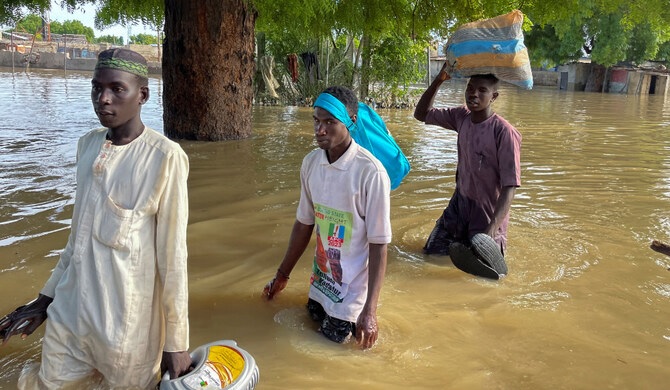
Could AI help Nigerians prepare for flooding?
Flooding in Nigeria has become increasingly severe, particularly affecting communities like Ogba-Ojibo, located at the confluence of the Niger and Benue rivers. Subsistence farmer Ako Prince Omali, 27, has seen firsthand how rising water levels have devastated his one-hectare crop of rice and yams. Just last week, heavy rains submerged three steps leading down to the Niger River, highlighting the growing intensity of seasonal flooding that has historically impacted the 4.5 million residents of Kogi State.
With Nigeria ranked second in the world for flood vulnerability, following India, approximately 15 million people are at risk. The situation worsened this year, with a dam collapse in Borno State displacing one million people by mid-September. In Kogi, local authorities estimate that an additional 250,000 residents may soon face displacement.
Typically, emergency food supplies are distributed by organizations such as the Red Cross and the International Organization for Migration after flooding occurs. However, these responses do not address the chronic nature of flooding, which has led to the exploration of innovative programs aimed at proactive measures.
Omali recalls his childhood experiences of relocating every autumn for two to three months due to flooding. During these periods, families face challenges including cramped living conditions, limited food access, and school closures.
Recent initiatives, such as those spearheaded by the nonprofit GiveDirectly, aim to provide cash payments to those in flood-prone areas before disasters strike. This new approach allows families to purchase essentials in advance, thereby mitigating some effects of flooding. GiveDirectly's program has enrolled around 30,000 participants in two weeks, integrating artificial intelligence (AI) to better predict flooding and enhance the effectiveness of aid.
Alex Diaz from Google.org explains that the initiative utilizes satellite imagery and socioeconomic data to identify communities at risk. The SKAI disaster detection model, developed in collaboration with the World Food Programme, allows for better anticipation of flooding events.
As flooding in Kogi is projected to intensify, early warning systems and anticipatory cash payments are expected to play a critical role in disaster response. GiveDirectly is implementing geo-targeting to pinpoint at-risk areas, with payments set to commence for 4,500 recipients this flood season.
Omali received his first cash transfer on August 31, which he used for food and repairs to his home. Despite the threat of rising waters, he and many other villagers are determined to remain in their homes, reliant on their access to land for farming.
As the rainy season continues, local farmers like Omali are left to navigate the complexities of climate change, hoping for solutions that can provide not just temporary relief, but long-term resilience.







